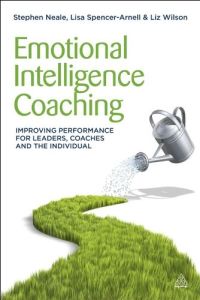Join getAbstract to access the summary!

Join getAbstract to access the summary!
Stephen Neale, Lisa Spencer-Arnell and Liz Wilson
Emotional Intelligence Coaching
Improving Performance for Leaders, Coaches and the Individual
Kogan Page, 2011
What's inside?
Improve your “emotional intelligence coaching” by combining emotional understanding and a focus on results.
Recommendation
In Tom Hanks’s 1992 hit baseball film A League of Their Own, an exasperated coach tells his all-female team, “There’s no crying in baseball.” Maybe not, but emotion plays a role in every other business. Emotional intelligence (EI) is the ability to understand your emotions and those of other people. EI derives from seeing and interpreting cues that indicate how you feel and how others feel. Such insights can be powerful tools for helping people reach their potential. This small volume by coaching experts Stephen Neale, Lisa Spencer-Arnell and Liz Wilson contains explanations, examples, case studies and worksheets to help you develop EI and use it in coaching. Though this primer can be repetitive and does cover some familiar ground, getAbstract believes that those new to coaching or to studying emotional intelligence will find it quite useful.
Summary
About the Authors
Psychologist Stephen Neale is managing director of BSC International, an emotional intelligence consultancy. Lisa Spencer-Arnell is managing director of CCS Coaching International. Liz Wilson is director of TWP behavioral change specialists.


















Comment on this summary